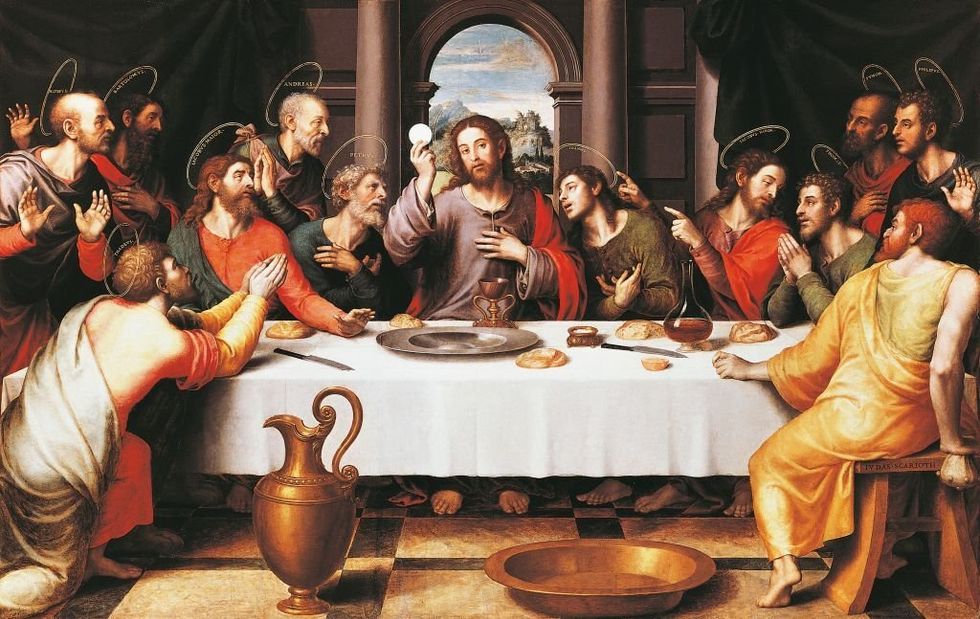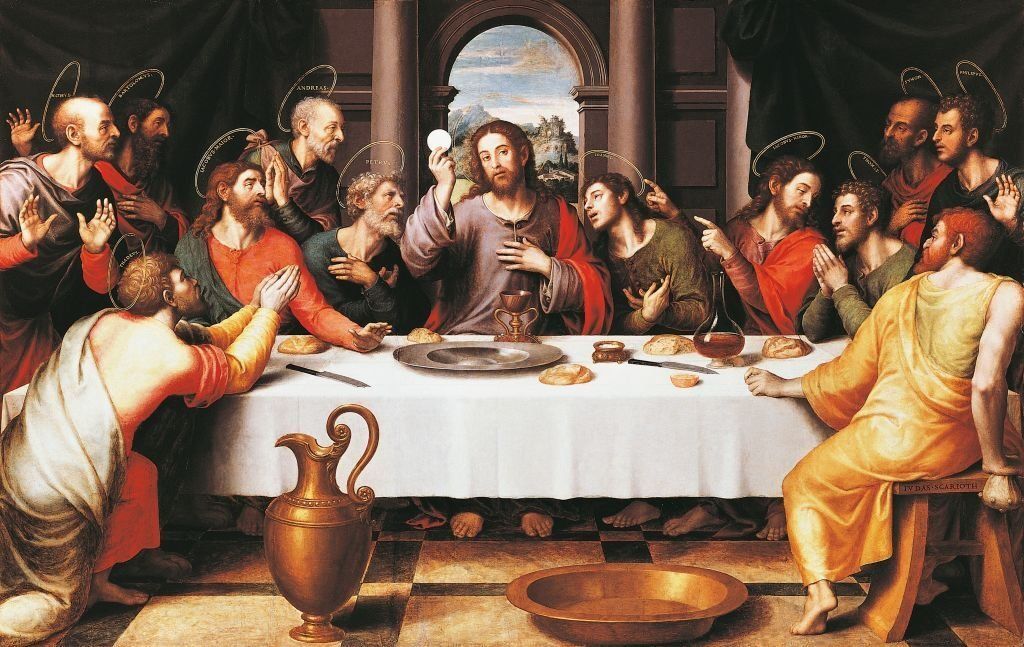

Does the church replace Israel? Did I ignore the Jews? Does the formation of Israel in 1948 fulfill Old Testament promises?
These were a few of the questions and critiques sparked by an essay I wrote last week, “How Tucker Carlson vs. Ted Cruz exposed a critical biblical question on Israel.” After providing a cursory biblical-theological exploration of the question “What is Israel?” I answered that no, the modern nation-state of Israel is not the fulfillment of Old Testament prophecies. I also stated that Christians are not biblically commanded to support the modern nation-state of Israel because the state of Israel and the biblical Israel are not the same entity.
To some, my conclusions sounded like heresy. But others, through emails or comments, expressed thankfulness for what they saw as a long-overdue correction.
In any case, I am thankful for every subscriber to and reader of Blaze Media, and I am thankful for everyone who wrote comments, positive or negative, and engaged with me.
This topic understandably touches nerves, but that’s why this conversation matters. And if the reaction proved anything, it’s that we need more biblical clarity. Below, I am going to respond to some of the critiques. I hope to provide clarity with charity and continue the dialogue about this important topic.
Did I ignore the Jews?
Mark Brown commented: “I’m curious how you just seemingly ignore the Jew in your theology. The New Covenant in Jeremiah is to be made with the House of Judah and with the House of Israel. Gentiles (read as the nations) are grafted into the olive tree and the roots of that tree are Israel. In effect, you are teaching that the church has replaced Israel which couldn’t be further from the truth!”
First off, thank you for subscribing to Blaze Media, Mark. I appreciate your thoughtful pushback.
I do not ignore Jews in my theology. I believe that scripture is clear that Jesus — a descendant of King David from the line of Judah (and therefore a Jew) — is the one true Israelite. As I stated in my essay, “He is the true and faithful Israelite who perfectly fulfills Israel’s vocation and perfectly keeps the covenant. Jesus is the great high priest, the anointed one, and the prophet of prophets.”
In that sense, Jews have a unique and special role in God’s redemptive plans. It is the line of Judah, after all, that God preserves to bring about his redemptive promises despite Judah’s repeated covenant unfaithfulness. You are right that the new covenant is made with the “House of Judah” and the “House of Israel” and that indeed happens in Jesus, as the author of Hebrews explains (Hebrews 8).
The question, then, is this: Do Jews retain their special status today?
On one hand, yes (e.g., Romans 3: 9-11). But the apostle Paul makes it clear that faith in Jesus, not ethnic identity, is what defines the true “Israel of God” (Galatians 6:16). For example, whereas torah commands physical circumcision as an external sign of inclusion, what humans really need is circumcision of the heart (Deuteronomy 30:6) — internal transformation. This happens in Jesus and through the Holy Spirit. As Christians, God has replaced our hearts of stone with hearts of flesh, and God’s law is now written on our hearts (Jeremiah 31:33-34; Ezekiel 36:26-27).
I do not teach replacement theology (i.e., that the church replaces Israel). Rather, I teach fulfillment theology — that all of God’s promises are fulfilled in Jesus Christ. I will say more about this criticism below.
One more point: I think it’s important to understand that “Jew” and “Israel” are not synonyms. The Hebrew word for Jew, yehudi, literally means “of Judah.” While biblical Israel certainly includes Jews (one of 12 tribes), not every Israelite is a Jew; by definition, Israel encompasses all 12 tribes of Abraham’s descendants.
This is why Paul understood what happens in Jesus — the ingathering of Israel — to be no longer limited or defined by ethnic boundaries. By definition, then, the restoration of Israel is not limited to the tribe of Judah.
Is Jesus a Jew?
Dale Errett responded: “Will you next claim that Jesus is not Jewish because He is a Christian?”
Dale, thank you for being a loyal subscriber to Blaze Media and taking the time to comment on my last essay.
I do not deny the Jewishness of Jesus. He was descended from David, born into the tribe of Judah, circumcised on the eighth day according to torah, raised under torah, and lived as a faithful Jew. In fact, if you read the New Testament carefully, you will see how Jesus perfectly keeps torah, never violating nor abrogating it.
The Jewishness of Jesus is critical to his identity as the Messiah.
Does the church replace Israel?
Dale Errett responded: “You couldn’t be more wrong! The modern stand of replacement theology that you are spouting here is utter heresy.”
Rebecca Freimann commented: “Replacement theory is from Satan.”
Dale and Rebecca, thank you for subscribing to Blaze Media. I appreciate the responses.
I share your concerns about replacement theology, a strand of thought that I find extremely problematic. But I do not teach replacement theology, nor do I think my essay advocated for it. I simply teach, as the New Testament does, that God’s promises to Israel are fulfilled in Jesus Christ — the true and faithful Israelite — and that anyone united to him by faith, whether Jew or Gentile, is an heir of those promises.
From this perspective, Israel is not discarded but brought to its intended purpose in Christ, the shepherd who gathers the lost sheep of Israel and brings in the nations.
Paul teaches that “not all who are descended from Israel are Israel” (Romans 9:6) and that “if you belong to Christ, then you are Abraham’s seed” (Galatians 3:29).
The church — Christians, people who follow the Christ, that is, Jesus — is the continuation and fulfillment of God’s Old Testament promises. Jesus is the revelation of those promises, not the replacement.
The apostle Paul takes great pains to explain how this works (see, again, Romans 9-11) using the metaphor of an olive tree. Gentiles are grafted into the family of God, sharing in the nourishing root of the Abrahamic covenant. The church — or, as Paul calls it, the true “Israel of God” — includes both Gentiles and Jews, the faithful remnant who place their faith in Jesus.
This is how God has always worked, not through ethnic boundaries alone, but through covenant faithfulness. Notice that Jesus’ genealogy in the Gospel of Matthew includes several non-Israelites (i.e., Tamar, Rahab, Ruth, and Bathsheba).
In Jesus, God is forming one people through faith in Him.
Did the modern formation of Israel fulfill OT prophecies?
An anonymous subscriber commented: “Might want to read Isaiah 11, Ezekiel 36, Jeremiah 32, among others regarding the restoration of the nation of Israel, and then consider if 1948 and modern Israel might be the fulfillment of these prophecies.”
Anonymous, thank you for subscribing to Blaze Media and leaving this thoughtful comment. Unfortunately, there is not enough space here to adequately respond to your objection, but I will try my best to give a cursory answer.
Each of the chapters that you cite refers to the future restoration of Israel. But the key question is when and how these prophecies are fulfilled. I believe the New Testament consistently teaches and interprets the restoration of Israel happening in and through Jesus.
For example, Isaiah 11’s vision of a righteous ruler points to the Messiah who inaugurates God’s kingdom, which is what Jesus did (e.g., Mark 1: 14-15). Ezekiel 36, meanwhile, envisions not just a physical restoration of Israel, but a spiritual one in which God gives his people a “new heart” and a “new spirit” (Ezekiel 36:26). And it is this internal transformation that defines the new covenant people of God (Jeremiah 32:40), a hope and transformation that is realized in Jesus.
Yes, the formation of the state of Israel in 1948 is historically significant. But it leaves me wondering: If the Old Testament is referring to that event, where does Jesus fit in?
Here I will quote the apostle Paul in Romans 9:25-26, where he quotes from the prophet Hosea:
As he says in Hosea: “I will call them ‘my people’ who are not my people; and I will call her ‘my loved one’ who is not my loved one,” and, “In the very place where it was said to them, ‘You are not my people,’ there they will be called ‘children of the living God.’”
It is my belief that scripture invites us to see Israel’s restoration as both physical and spiritual, ultimately centered on faith in Jesus Christ and the ingathering of God’s people from all nations into one new humanity.
Thank you, again, to every Blaze Media reader and subscriber. It has been a deep joy to wrestle with scripture and these questions and to engage with you all.
















